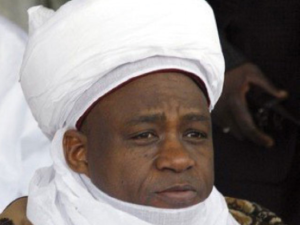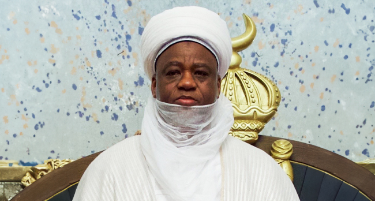The Sultanate Council has affirmed its willingness to collaborate and support the Sokoto State Government while adhering to the laws established for the Council. This commitment was articulated by a representative of the Sultan, Muhammad Jabi Kilgori, during a public hearing held at the State House of Assembly on Tuesday in the North-West state.
The public hearing was convened to discuss a bill aimed at further amending the Sokoto State Local Government and Chieftaincy Law of 2008. This bill has garnered significant attention nationwide, drawing a diverse array of stakeholders and interest groups to the hearing. The controversial nature of the bill had generated considerable tension and apprehension among attendees.
 Despite the charged atmosphere, the representative of the Sultanate Council, Muhammad Jabi Kilgori, helped to alleviate concerns with his remarks, thereby reducing the tension among the public. Additionally, Sokoto State Attorney General Muhammad Binji emphasized that the executive’s actions were intended to ensure adherence to constitutional order. Various stakeholders presented their views to the House Committee on Local Government and Community Development, which will consider these inputs for further legislative action.
Despite the charged atmosphere, the representative of the Sultanate Council, Muhammad Jabi Kilgori, helped to alleviate concerns with his remarks, thereby reducing the tension among the public. Additionally, Sokoto State Attorney General Muhammad Binji emphasized that the executive’s actions were intended to ensure adherence to constitutional order. Various stakeholders presented their views to the House Committee on Local Government and Community Development, which will consider these inputs for further legislative action.
The backdrop to this hearing includes a series of recent events that have heightened interest and concern. In June, the state’s High Court issued an order preventing Governor Ahmed Aliyu from dismissing two of the 15 District Heads previously removed from their positions by his administration. Moreover, the religious organization Muslims Rights Concern (MURIC) had accused the state government of conspiring to dethrone the Sultan of Sokoto, Muhammad Sa’ad Abubakar III.
In response to these allegations, Vice President Kashim Shettima made a statement on Monday underscoring the importance of safeguarding and protecting the Sultan’s throne as a vital institution. Furthermore, the Sokoto State Government has categorically denied any intentions to depose the Sultan, countering the speculations and rumors circulated by various individuals and groups.
The public hearing and the surrounding events highlight the complex interplay between traditional institutions and contemporary governance in Sokoto State. The outcomes of the legislative process and the responses from various stakeholders will likely continue to shape the political and social landscape of the region.




